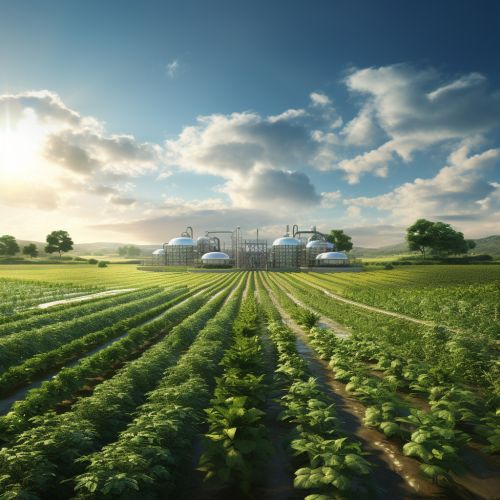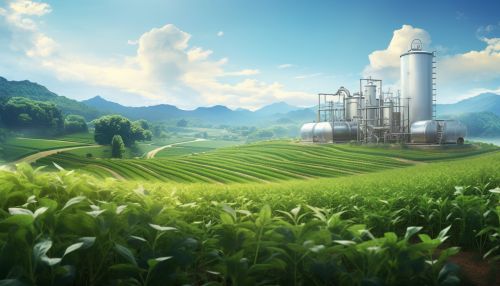Agricultural Biotechnology
Introduction
Agricultural biotechnology, also known as AgriTech, is a specific area of agricultural science involving the use of scientific tools and techniques, including genetic engineering, molecular markers, molecular diagnostics, vaccines, and tissue culture, to modify living organisms: plants, animals, and microorganisms.
History and Development
The history of agricultural biotechnology dates back to the domestication of plants and animals. Through selective breeding, our ancestors were able to develop crops with specific traits by choosing seeds from the best plants to sow the following year, and animals were similarly selected for breeding. This early form of biotechnology has significantly evolved over the centuries, with the advent of genetic engineering in the 20th century marking a major milestone in its development.


Genetic Engineering in Agriculture
Genetic engineering is a key aspect of agricultural biotechnology. It involves the manipulation of an organism's genes using biotechnology. The process involves the manipulation of DNA sequences in the organism or the introduction of foreign DNA. The goal of genetic engineering in agriculture is to increase the productivity and efficiency of crop production, enhance the nutritional value of foods, and reduce the need for chemicals used in food production such as pesticides and fertilizers.
Molecular Markers in Agriculture
Molecular markers have become an indispensable tool in agricultural biotechnology. They are sequences of DNA that can be used to identify and track traits within a population. Molecular markers are used in plant breeding to speed up the development of new crop varieties with desirable traits. They are also used in animal breeding to identify animals with desirable traits for meat, milk, or egg production.
Molecular Diagnostics in Agriculture
Molecular diagnostics is another important tool in agricultural biotechnology. It involves the use of various techniques to analyze biological markers in the genome and proteome. In agriculture, molecular diagnostics is used to detect and identify diseases in crops and livestock. Early detection of diseases can help prevent significant losses in agricultural production.
Vaccines in Agriculture
Vaccines play a crucial role in agricultural biotechnology, particularly in animal health. Vaccines help to protect animals against various diseases, thereby improving their health and productivity. In recent years, biotechnology has been used to develop more effective vaccines that are safer and easier to administer.
Tissue Culture in Agriculture
Tissue culture is a technique used in agricultural biotechnology where cells, tissues, or organs are grown and maintained in a controlled artificial environment. This technique is used for the propagation of plants with desirable traits, production of disease-free plants, and the rapid production of plants in large quantities.
Future of Agricultural Biotechnology
The future of agricultural biotechnology holds great promise. With advancements in technologies such as CRISPR-Cas9, gene editing has become more precise and efficient. This could lead to the development of crops with improved resistance to diseases and pests, enhanced nutritional content, and better adaptability to environmental conditions. Similarly, advancements in animal biotechnology could lead to the production of animals with improved productivity and resistance to diseases.
